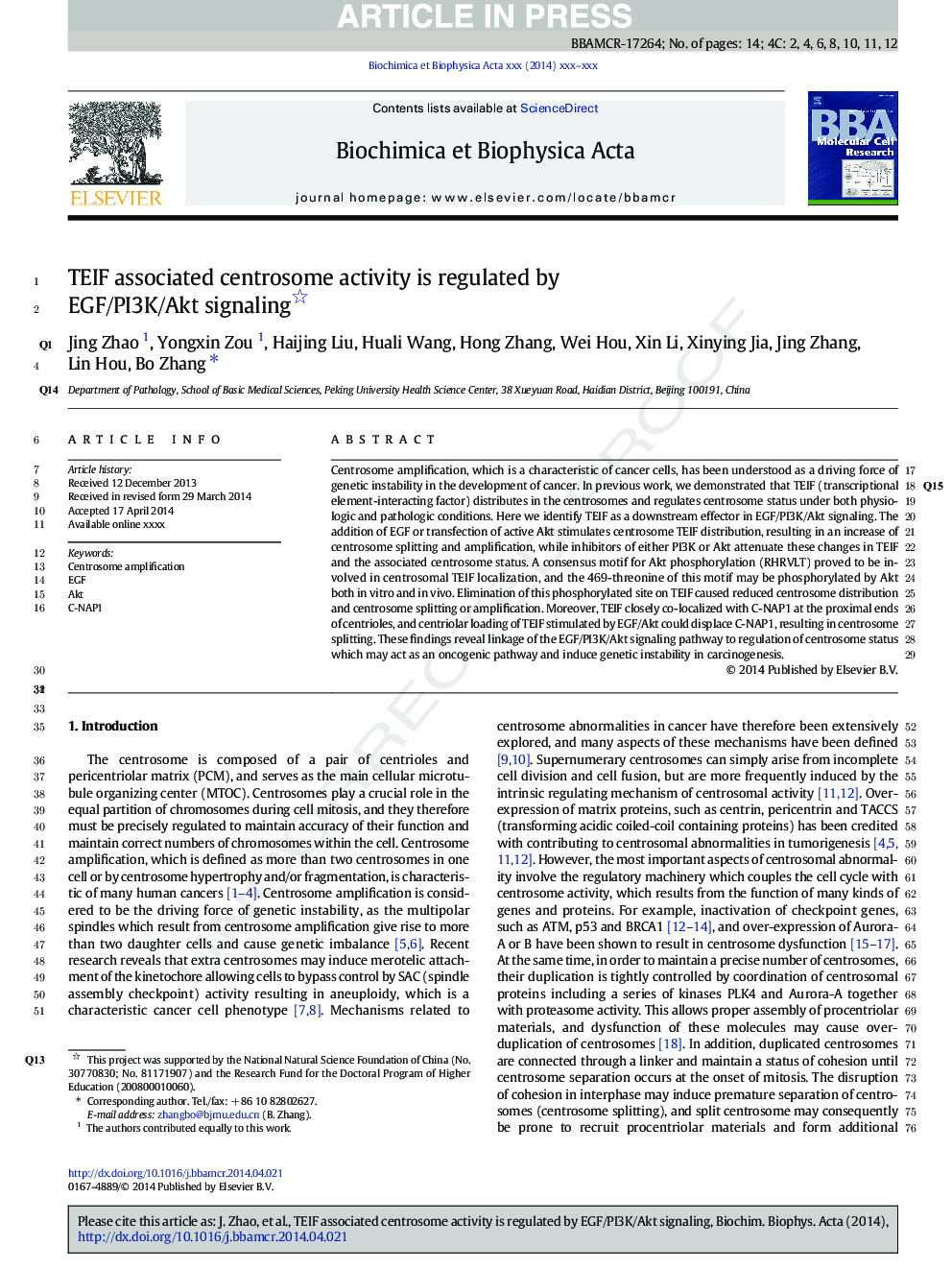| Article ID | Journal | Published Year | Pages | File Type |
|---|---|---|---|---|
| 10802234 | Biochimica et Biophysica Acta (BBA) - Molecular Cell Research | 2014 | 14 Pages |
Abstract
Centrosome amplification, which is a characteristic of cancer cells, has been understood as a driving force of genetic instability in the development of cancer. In previous work, we demonstrated that TEIF (transcriptional element-interacting factor) distributes in the centrosomes and regulates centrosome status under both physiologic and pathologic conditions. Here we identify TEIF as a downstream effector in EGF/PI3K/Akt signaling. The addition of EGF or transfection of active Akt stimulates centrosome TEIF distribution, resulting in an increase of centrosome splitting and amplification, while inhibitors of either PI3K or Akt attenuate these changes in TEIF and the associated centrosome status. A consensus motif for Akt phosphorylation (RHRVLT) proved to be involved in centrosomal TEIF localization, and the 469-threonine of this motif may be phosphorylated by Akt both in vitro and in vivo. Elimination of this phosphorylated site on TEIF caused reduced centrosome distribution and centrosome splitting or amplification. Moreover, TEIF closely co-localized with C-NAP1 at the proximal ends of centrioles, and centriolar loading of TEIF stimulated by EGF/Akt could displace C-NAP1, resulting in centrosome splitting. These findings reveal linkage of the EGF/PI3K/Akt signaling pathway to regulation of centrosome status which may act as an oncogenic pathway and induce genetic instability in carcinogenesis.
Keywords
Related Topics
Life Sciences
Biochemistry, Genetics and Molecular Biology
Biochemistry
Authors
Jing Zhao, Yongxin Zou, Haijing Liu, Huali Wang, Hong Zhang, Wei Hou, Xin Li, Xinying Jia, Jing Zhang, Lin Hou, Bo Zhang,
